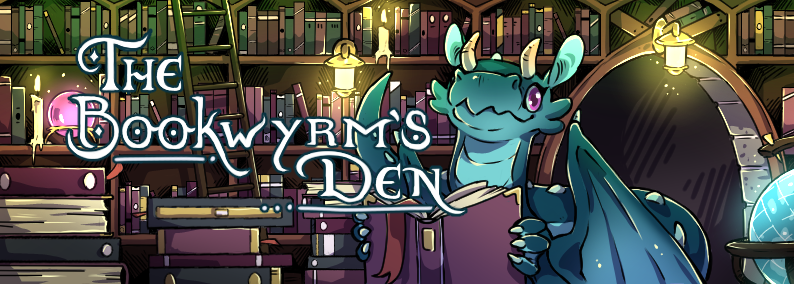Language is a beautiful—and often confusing—thing. I can’t tell you how many random things I’ve learned through reading, but my favorite has to be expressions. I love all the different and creative ways you can say things that mean other things. Who knew? Some of these are new ones I discovered while reading, and some are ones I had to re-learn because, I confess, I’m human (shhh, don’t tell anyone). and make silly mistakes.
This was originally started for Top Ten Tuesdays, and it’s now Friday so … that went well? I actually ended up getting a last-minute call to volunteer this week and then had an impromptu doctor’s visit, all of which kept me out of the house just long enough to not be able to finish this up. So Friday is the new Tuesday!
Top Ten Tuesdays are hosted by That Artsy Reader Girl. This week’s prompt was a freebie.
A shoo-in
Like many people, I grew up thinking this was a shoe-in. Which made perfect sense to me, because when someone’s made progress and is on their way up in a business, we say he’s a shoo-in for promotion or he’s got his foot in the door. So obviously, he had his “shoe-in” and was going to force his way up the business ladder! I mean, that’s totally not what it is, as it turns out, but I always thought it was just a shortening of a different idiom, and I am all for laziness.
Deep-Seated
Again, like a lot of people, I always thought this was deep-seeded. I blame it on the agricultural community I grew up in, so the expression made total sense. Whoever decided it should be deep-seated, though, needs to be knocked down a peg or two. And then deep-seeded. Because let’s be honest, that just makes more sense.
Dog-Eat-Dog World
This one I actually learned early on in my childhood. I used to say “doggy-dog world.” My parents thought it was adorable and thus never thought to correct me (and I haven’t quite forgiven them for that). Then, one day, I read “dog-eat-dog world” in a book and thought, well, that’s silly. Why would dogs want to eat each other? Pffft. That makes no sense. Imagine my disappointment when I learned otherwise.
Moot Point
This one I had wrong, then got right, then got wrong again. I blame the dubious people in my life who are unable to admit when they just don’t know something, darn it. Back in the pre-Internet days (yes, I know, gosh I’m old), I had to rely on what people around me said. Plus, I was quite young and naive. So when someone told me it was spelled “mute” and pronounced “moot,” I didn’t question them, because surely they would know, right? Well, wrong. That’ll teach me for not asking a million questions just once in my life.
C’est pour faire parler les curieux.
This one isn’t in English. I mean, in case you didn’t notice. When I came across this, though, I was so excited, because I asked a lot of questions when I was a kid, and my grandfather’s response was, “Just to make you ask questions.” Because he was old and didn’t know how much time he had left and didn’t want to answer 4320 questions a second. Who can blame him? Directly translated, this means, “To make the curious talk.” But in English, we say, “To make you ask questions.” There’s something special about hearing a familiar expression in a different language.
All talk and no trousers
When I first heard this, I thought it was silly. Okay, I still sort of thing it’s silly and totally giggle when someone says it. This is probably my favorite expression, and I’m not sure why, but I do genuinely love it. Probably because whenever I read it, it’s in an Irish brogue, which is charming and beautiful. One day, I will look up where this came from, but for now, I sort of just like the ambiguity of it and how not having pants became the sign for inaction. Although, to be fair, when I’m at home with no intention of doing anything, I often don’t have trousers, either, so maybe they’re on to something.
Shore Up
I always thought this was sure up, which made perfect sense because of course, you would sure up something and thus make it more sure. Logical. I mean, now that I know the history behind shore up, that also sounds logical, but I was so confused at first when I realized it was shore up. Now, I just picture it with a pirate’s accent, which makes me giggle, so I consider it a win.
Baker’s dozen
This one feels a lot like cheating. A dozen is 12 items. A baker’s dozen is not. Why are bakers so special that they get an extra item? As a child, I argued with my grandmother about this when I asked her what it was. I mean, we have a word for that. It’s called thirteen. She also had no idea why it was called that, but it was, darn it. I’ve since looked it up, and I recommend you do, too. It’s actually quite interesting.
Joshing me
I knew several Joshes growing up. I could understand why this wasn’t necessarily a compliment. I mean, it’s a lot of fun to say and rolls right off the tongue, so there’s that. But I particularly like the fact that someone can be so infamous that they have a saying named after them, and the saying lives so long that pretty much nobody remembers off-hand who it’s referring to, thus giving everyone else who shares a name with them a bad reputation. It’s just … It’s splendid. I need to up my game.

What are your favorite expressions? Do you know where they originated?


Leave a Reply